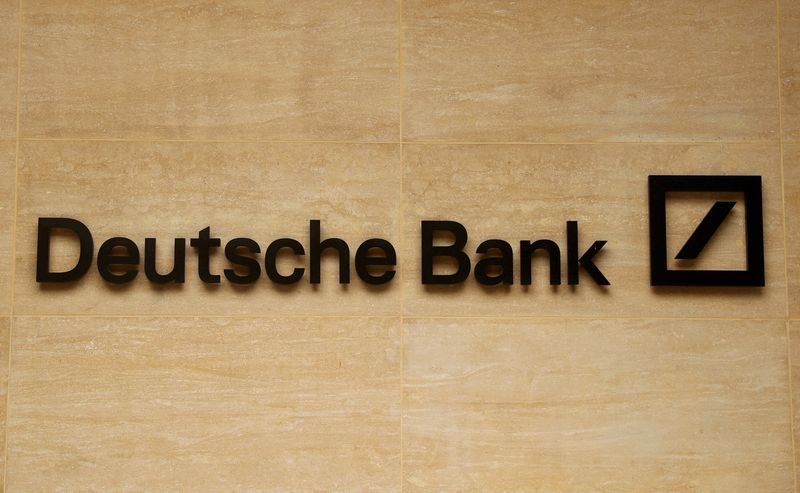Bundesbank warns banks against ‘careless’ payout pledges as economy cools
2022.11.23 04:02
[ad_1]
2/2

© Reuters. FILE PHOTO: The logo of Deutsche Bank is pictured on an office of the company in London, Britain July 8, 2019. REUTERS/Simon Dawson
2/2
By Francesco Canepa and Frank Siebelt
FRANKFURT (Reuters) – German banks should avoid making multi-year promises to their shareholders despite bumper profits this year as the outlook for the economy is worsening, Bundesbank board member Joachim Wuermeling told Reuters.
He was joining other European Central Bank supervisors in telling lenders to preserve capital – a message that has irked bankers as they try to woo investors to their beaten down shares.
“What we fundamentally warn banks against is making medium-term promises to investors about dividend payments,” Wuermeling, a member of the ECB’s Supervisory Board who oversees the euro zone’s biggest lenders, said in an interview.
“If you are bound by such promises, even though the environment has changed radically, you get into a very difficult dilemma.”
Banks have been reporting bumper profits and announcing dividends and share buybacks, boosted by a sharp increase in interest rates and a trading boom after more than a decade of mostly meagre returns.
Italy’s UniCredit has set a hard figure for shareholder remuneration under a plan to 2024 in defiance of an ECB preference for payout ratios and its CEO Andrea Orcel even pledged to match this year’s 3.75 billion euro distribution goal next year.
In Germany, where the Bundesbank expects a mild recession next year, Deutsche Bank (ETR:) wants to increase its next dividend by 50% as part of a plan to distribute 8 billion euros ($8.22 billion) by 2025.
Commerzbank (ETR:) is set to pay its first dividend since 2020 next year.
Wuermeling said German banks had only modestly raised their payout ratios in their own plans and most should manage to preserve their capital ratios even after taking into account large dividend increases in absolute terms.
But he added this year’s outsized profits should not lead to “carelessness”.
“Next year could be a bit frostier. This is also the reason why we tend to advise keeping capital in the bank so that it is available to offset any losses,” he said.
“The current situation, which is still good, should not lead to carelessness.”
He added the Bundesbank was “not thrilled” by the European Commission’s decision to delay the implementation of the Basel III rules to 2025 but said this was “just a temporary deviation” from the globally agreed standards.
($1 = 0.9740 euros)
[ad_2]
Source link








